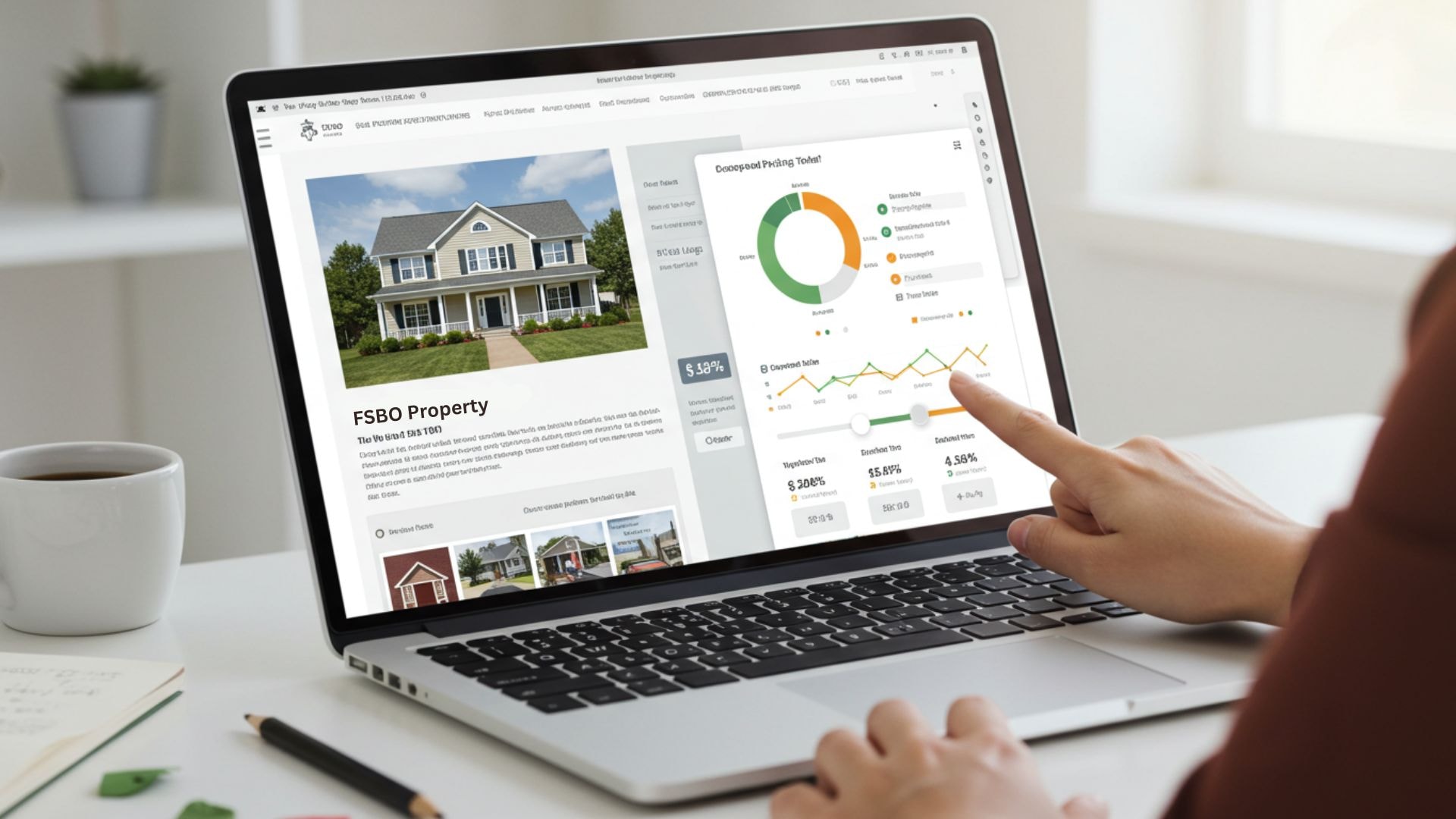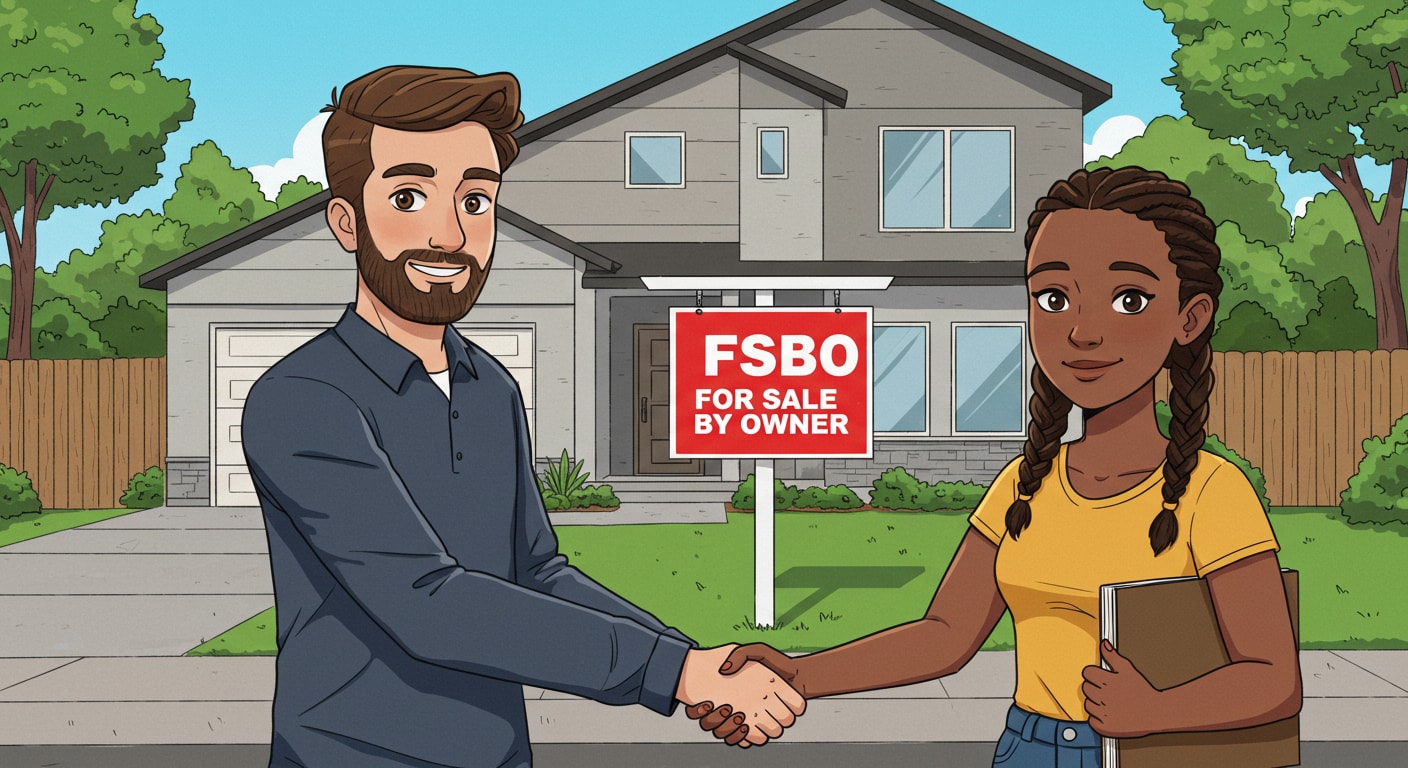
How For Sale by Owner Is Changing in Texas
For Texas homeowners, selling a house without a real estate agent has never been easier—or more appealing. The traditional For Sale By Owner (FSBO) process has undergone a major transformation, thanks to advancements in technology, shifting buyer expectations, and evolving market trends.

While FSBO sellers once struggled with limited exposure and complex paperwork, today’s online tools and digital platforms make listing, marketing, and closing on a home more accessible than ever. More homeowners are realizing they can maximize their profits while maintaining full control over their home sales without paying hefty agent commissions.
For buyers, purchasing a home from an owner offers its own set of opportunities and challenges. With fewer middlemen involved, buyers may find more room for negotiation and a smoother transaction. However, navigating a FSBO sale requires an understanding of contracts, inspections, and financing—especially as recent market shifts have changed the way homes are bought and sold.
Whether you’re a seller looking to take advantage of a changing market or a buyer hoping to land the perfect home, knowing what to expect in today’s FSBO landscape is the first step toward a successful deal.
The Rise of FSBO: Purchasing a Home from Owner in Texas
The traditional real estate model is changing, and more Texas homeowners are deciding that selling without a real estate agent is the right direction. With the help of online tools and streamlined services, FSBO sellers now have the resources to market their property, set a competitive asking price, and handle negotiations without paying steep agent commissions.
While selling FSBO comes with financial advantages, it also requires sellers to take a hands-on approach. Likewise, buyers considering purchasing a home from an owner must understand the unique dynamics of an FSBO transaction to ensure a smooth deal.
Why More Homeowners Are Choosing FSBO
One of the biggest reasons more homeowners are choosing FSBO is cost savings. Traditional real estate agents typically take a 5-6% commission, which can add up to tens of thousands of dollars.
By handling the home sale independently, sellers can keep more of their money while still leveraging online tools to attract buyers. Additionally, FSBO sellers have complete control over the sale process, from setting the asking price to negotiating directly with buyers—something many homeowners find empowering.
The Benefits and Challenges for Buyers and Sellers
For buyers, an FSBO home can present both opportunities and challenges. Without a listing agent involved, there’s often more room to negotiate a favorable price, since sellers aren’t factoring in commission costs.
However, buyers must be prepared to navigate the FSBO transaction without the same level of guidance that comes with working with a buyer’s agent. Understanding purchase contracts, home inspections, and financing options is crucial to making an informed decision and avoiding potential pitfalls.
How Technology Is Making FSBO Easier
Selling a home without a real estate agent used to mean limited exposure, complex paperwork, and a steep learning curve. But today, technology is closing the gap between FSBO sellers and traditional real estate transactions.

With the right online tools, homeowners can confidently list, market, and manage the sale by owner process, making FSBO more accessible and efficient than ever. From accurate pricing tools to digital contract management, these advancements are reshaping the way homes are sold in Texas.
Pricing Tools That Help FSBO Sellers Maximize Profits
Determining the right asking price has always been one of the biggest challenges for FSBO sellers. However, modern market analysis tools now provide sellers with data-driven insights, comparing similar FSBO properties to help establish a competitive yet profitable price. These tools ensure homeowners don’t undervalue their property or risk overpricing, which could deter potential buyers.
FSBO Listings Now Compete with Traditional Agents
In the past, FSBO homeowners struggled to get the same exposure as properties listed by a real estate agent. Today, technology allows FSBO listings to reach the same buyer pool through MLS syndication, putting them in front of thousands of potential buyers across major real estate websites.
High-quality listing photos, virtual tours, and digital marketing strategies now give FSBO sellers the ability to showcase their homes just as effectively as a listing agent would.
Digital Contracts and Remote Closings Are the New Norm
Handling paperwork is often one of the most daunting aspects of an FSBO sale, but digital platforms now make FSBO transactions smoother and more secure. Sellers and buyers can use e-signatures for purchase contracts, while title companies and escrow agents facilitate remote closings.
Digital tools eliminate the need for in-person meetings and make the entire home sale process faster and more convenient. With fewer barriers to closing, FSBO is becoming an increasingly viable option for homeowners looking to maximize their profits.
The Role of a Real Estate Agent in Today’s FSBO Market
While selling a home without a real estate agent has become easier, many sellers still wonder if they should hire one. The traditional agent model is shifting, and homeowners now have more choices when it comes to professional assistance. Some sellers still prefer the guidance of an agent, while others opt for flat-fee services that provide specific support without the high cost of agent commissions.
Understanding these options can help sellers make the best decision for their FSBO transaction and financial goals.
Why Some Sellers Still Opt for Agent Assistance
Even with the availability of online tools and digital platforms, some homeowners feel more comfortable having an expert manage their home sales. A real estate agent can provide pricing guidance, assist with negotiations, and oversee the closing process. Sellers who lack the time or confidence to handle these aspects on their own may choose to work with an agent to reduce stress and ensure a smooth sale-by-owner experience.
Flat-Fee Services vs. Traditional Commissions
Instead of paying a full agent commission, many FSBO sellers are turning to flat-fee services that provide essential support at a lower cost. These services often include MLS listings, professional photography, and contract assistance without requiring sellers to hand over a percentage of their home sale price.
This hybrid approach allows homeowners to retain control of the FSBO process while still benefiting from expert resources when needed.
The Hybrid Approach: When FSBO and Agents Work Together
Some sellers find a middle ground by using real estate attorneys, escrow agents, or on-demand agents for specific parts of the FSBO transaction. This approach lets sellers handle most of the process themselves while seeking professional help for pricing, negotiations, or closing.
As the housing market continues to evolve, more homeowners are embracing this flexible model to balance cost savings with professional guidance.
What Buyers Need to Know About an FSBO Listing
Buying a home directly from an FSBO seller can be a great opportunity, but it also comes with unique challenges. Without a real estate agent representing the seller, buyers must take extra steps to protect their interests and ensure a smooth FSBO transaction.
From navigating the purchase contract to handling inspections and financing, understanding how to approach an FSBO home sale is key to making a smart investment.
How to Navigate the Home Search Without a Buyer’s Agent
Many buyers are accustomed to working with a buyer’s agent, but when purchasing an FSBO home, they may need to take a more proactive role. This means directly communicating with the FSBO seller, scheduling showings, and negotiating terms without relying on an agent.
While some buyers may still choose to hire a real estate agent, others prefer to handle the process independently to avoid paying additional agent commissions.
The Importance of Inspections and Appraisals
One of the biggest risks in an FSBO sale is ensuring the home is in good condition and priced fairly. Buyers should always hire a home inspector to uncover any potential issues before finalizing the purchase contract.

Additionally, obtaining an appraisal helps determine the appraised value of the property, ensuring that the asking price aligns with market conditions. Skipping these steps could lead to costly surprises down the road.
Securing Financing for an FSBO Home Purchase
Unlike buying through a traditional real estate agent, securing a mortgage for an FSBO home requires careful coordination. Buyers should get pre-approved by a lender early in the process to strengthen their offer.
Working with a title company and an escrow agent ensures that the escrow account is properly managed and that all necessary documents are in place for a smooth closing. Proper financing preparation can prevent delays and help buyers successfully complete their FSBO transactions.
FSBO Regulations and Market Trends in Texas
Selling and buying homes For Sale By Owner comes with fewer middlemen, but that doesn’t mean it’s without rules. As the housing market evolves, so do the regulations affecting FSBO transactions. Whether you’re an FSBO seller or a buyer considering purchasing a home from an owner, it’s essential to understand the latest legal requirements and market shifts. Changes in real estate laws, financing trends, and buyer behavior are shaping the way homes are sold in Texas.
Recent Law Changes Affecting Home Sales
New regulations have impacted how FSBO transactions are handled, particularly when it comes to contracts and buyer representation. One key change requires buyers to sign an agreement with their buyer’s agent before viewing a home. This agreement outlines compensation terms, potentially shifting commission costs to the buyer rather than the seller.
Additionally, legal requirements for purchase contracts, escrow accounts, and disclosure forms continue to evolve, making it important for FSBO sellers to stay informed. Paying attention to the National Association of Realtors can help you keep track of trends and housing market changes.
How Market Conditions Influence FSBO Success
The state of the housing market plays a major role in the success of FSBO sales. In a seller’s market, where demand is high and inventory is low, FSBO properties may sell quickly without the help of a real estate agent.
However, in a buyer’s market, sellers may struggle to attract interest without competitive pricing and strong marketing strategies. Keeping an eye on interest rates, appraised values, and regional market trends helps FSBO sellers make smart decisions.
The Future of Selling Homes Without an Agent
Technology and changing consumer preferences are driving more homeowners toward FSBO listings, but the landscape continues to evolve. As online tools and digital closing services become more advanced, the process of selling a home FSBO will likely become even more streamlined. At the same time, buyers and sellers must stay aware of emerging regulations, financing options, and the role of real estate attorneys in ensuring legally sound FSBO transactions.

With the right knowledge and preparation, selling a home without an agent is becoming an increasingly viable—and profitable—option for Texas homeowners.
The Smart Way to Sell or Buy a Home Without Paying High Commissions
The way Texans approach purchasing a home from an owner or selling one FSBO has changed dramatically. With powerful online tools, improved access to market data, and evolving buyer expectations, homeowners no longer need to rely on a real estate agent to secure the best deal.
Home buying, too, can benefit from a direct FSBO transaction, often avoiding added commission costs and negotiating more favorable terms. However, to succeed in today’s housing market, both sellers and buyers need to be well-informed, proactive, and ready to navigate the home sale process confidently.
That’s where ListingSpark makes all the difference. Unlike traditional real estate agents, we provide homeowners with everything they need to list, market, and close their FSBO properties—all while saving thousands in agent commission. With cutting-edge pricing insights, MLS syndication, contract assistance, and built-in title company services, we empower sellers to maximize profits without sacrificing support. Whether you’re a homeowner looking to sell or a buyer searching for your dream home, ListingSpark simplifies the process and keeps more money in your pocket. Get started today and take control of your real estate journey.
Related Posts
How to Price Your Home: Key Factors That Determine Market Value
Strategic home pricing reduces market time and attracts more qualified buyers through competitive positioning. Set your price using recent sales data, consider seasonal timing, and stay flexible based on market feedback to maximize your sale…
Selling a House Without a Realtor: Hidden Costs & Risks
When homeowners consider the risks of selling a house without a realtor, they often focus solely on potential commission savings. However, FSBO homes sold for a median of $380,000 in 2024, compared to $435,000 for…
Do You Need a Realtor to Sell a House?
The latest data from the National Association of Realtors shows that 90% of home sellers use agents, but this raises an important question: Do you need a realtor to sell a house? While the majority…




